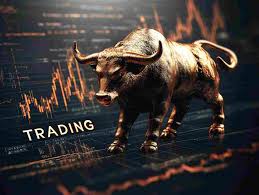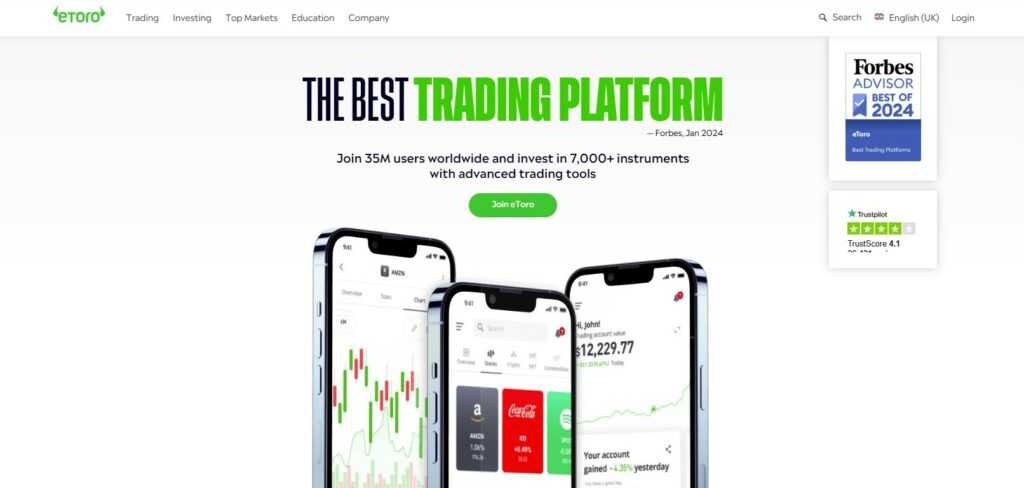
In the rapidly evolving world of finance, choosing the best trading app is essential for both novice and experienced traders. With a plethora of options available, it’s crucial to identify the key features and factors that can help you make informed decisions. This article delves into the important aspects of trading apps, their benefits, and provides a comparison of some of the leading platforms available today.
Understanding Trading Apps
Trading apps are mobile or web-based platforms that allow users to buy and sell financial instruments such as stocks, bonds, ETFs, cryptocurrencies, and more. These apps have revolutionized the way people engage with financial markets, making trading more accessible than ever before.
Key Features to Look for in a Trading App
- User-Friendly Interface: A clean and intuitive interface can significantly enhance your trading experience. Look for apps that prioritize user experience.
- Security: Since trading involves sensitive financial information, robust security features are a must. Check for two-factor authentication (2FA), encryption, and regulatory compliance.
- Range of Assets: The best trading app should allow you to trade a wide variety of assets. Ensure that the platform offers the instruments you want to trade.
- Fees: Different apps have varying fee structures. Some may charge transaction fees, while others might have low or no fees but a spread. It’s essential to understand how fees work on the platform you choose.
- Research Tools: Access to charts, analysis tools, and educational resources can significantly improve your trading decisions. Look for apps that offer comprehensive research tools.
- Customer Support: In case you encounter issues or have questions, responsive customer support can save you from potential headaches. Check reviews to ensure the app provides reliable support.

Benefits of Using Trading Apps
Trading apps provide numerous advantages that enhance the trading experience:
- Accessibility: With a mobile app, you can trade from anywhere at any time. This flexibility allows you to take advantage of market opportunities.
- Real-Time Data: Trading apps often provide real-time market data and alerts, helping you stay informed and make timely trading decisions.
- Lower Costs: Many trading apps offer commission-free trading, allowing you to keep more of your profits.
- Automation: Some apps allow for automated trading strategies, letting you set rules for when to buy or sell without constant monitoring.
Comparison of Popular Trading Apps
With many trading platforms available, it’s helpful to compare a few of the most popular options to find the best fit for your trading needs.
1. Robinhood
Robinhood is widely known for its commission-free trading and user-friendly interface. It’s suitable for beginners, offering a straightforward platform without hidden fees. However, it lacks some advanced features and research tools.
2. E*TRADE
E*TRADE provides a comprehensive platform with advanced trading tools and research resources, making it suitable for experienced traders. It has a tiered commission structure, with fees for certain trades but also offers commission-free options.
3. TD Ameritrade
TD Ameritrade is renowned for its extensive educational resources and top-notch trading tools. It offers a powerful trading platform with various asset classes available, making it a favorite among serious investors.
4. Coinbase
For those interested in cryptocurrency trading, Coinbase is one of the most popular options. It offers a user-friendly platform with a variety of digital currencies to choose from. However, its fees can be higher compared to some competitors.
Choosing the Right Trading App for You
Your choice of trading app should align with your trading goals, experience level, and the types of assets you wish to trade. Always consider your individual needs and preferences rather than simply opting for the most popular app. Below are some considerations:
- Beginner vs. Advanced: Beginners may prefer user-friendly platforms with intuitive designs, while advanced users might seek apps with extensive features and analytics.
- Investment Goals: Determine whether you want to invest long-term or engage in day trading, as this can affect your choice of app.
- Asset Variety: If you plan on trading stocks, ETFs, and cryptocurrencies, look for a platform that supports all those assets.
Conclusion
Ultimately, the best trading app is one that meets your specific needs as a trader. Consider factors such as cost, ease of use, available assets, research tools, and customer support when making your decision. With the right app in hand, you can take confident steps toward achieving your trading goals.
As technology continues to shape the financial landscape, staying informed about the best trading apps will allow you to leverage these tools to your advantage. Happy trading!
